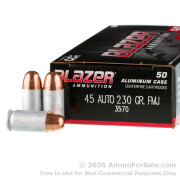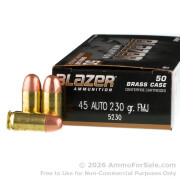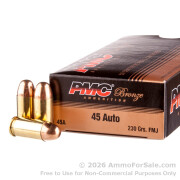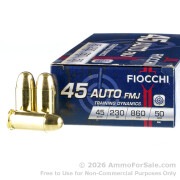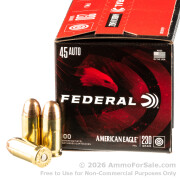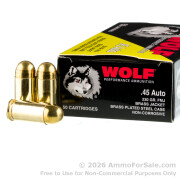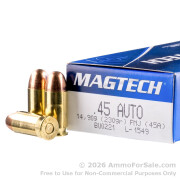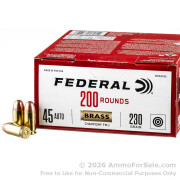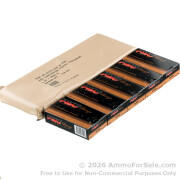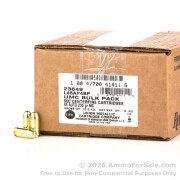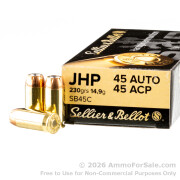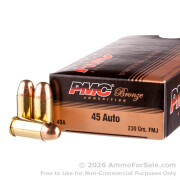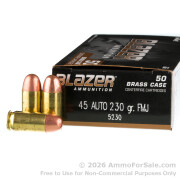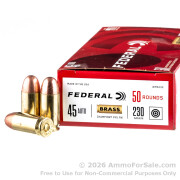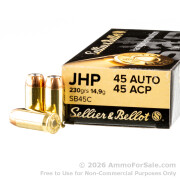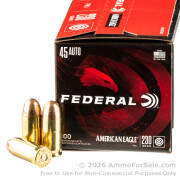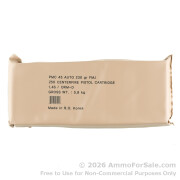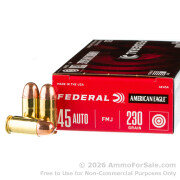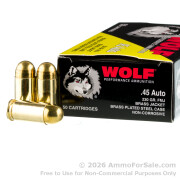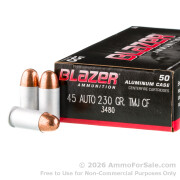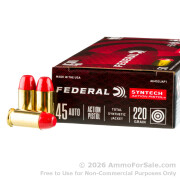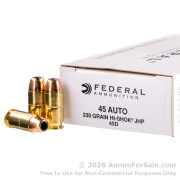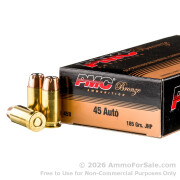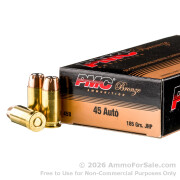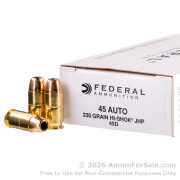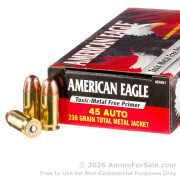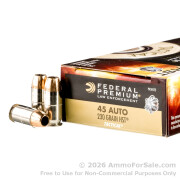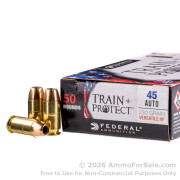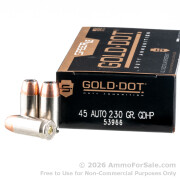.45 ACP Ammo For Sale

45 ACP ammunition is among the most popular and most effective pistol calibers in the world! Legend has it, the United States Calvary requested a pistol-caliber round with enough stopping power to take down a charging horse. John Browning made it happen for the military and then, in 1905, Anmercian civilian shooters were able to buy 45 ACP ammo.
The original 45 ACP cartridge fired a 13 gram bullet at 900 feet per second, but after a number of revisions, it eventually wound up a 15 gram bullet fired at about 850 feet per second. Today, you'll find most shooters use 185 grain or 230 grain projectiles with bulk shooters relying on full metal jacket rounds for optimal cost effectiveness.
-
16 ready to ship
-
18 ready to ship
-
10 ready to ship
-
12 ready to ship
-
12 ready to ship
-
12 ready to ship
-
13 ready to ship
-
17 ready to ship
-
4 ready to ship
-
24 ready to ship
-
13 ready to ship
-
84 ready to ship
-
93 ready to ship
-
43 ready to ship
-
62 ready to ship
-
87 ready to ship
-
34 ready to ship
-
22 ready to ship
-
52 ready to ship
-
55 ready to ship
-
11 ready to ship
-
16 ready to ship
-
8 ready to ship
-
34 ready to ship
-
1000 Rounds of 230gr HST JHP .45 ACP Ammo by Federal Law Enforcement
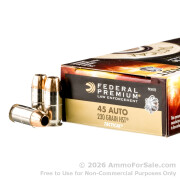
Regular Price: $799.99
Special Price: $649.99
5 ready to ship -
54 ready to ship
-
51 ready to ship
-
39 ready to ship
-
2 ready to ship
-
74 ready to ship
- Video

- Info
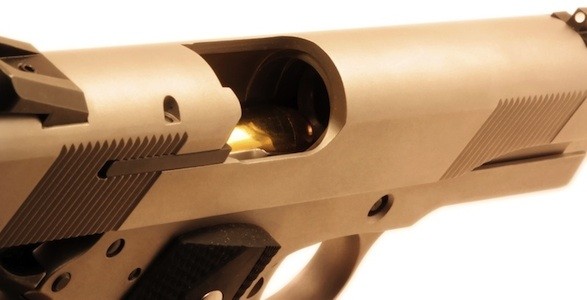
.45 ACP Ammunition: What's So Awesome About It?
This .45 ACP ammo for sale is one of the most effective combat cartridges in the world, combining accuracy and stopping power with a low muzzle flash and moderate recoil. This in-stock .45 ACP also extends the usability of weapons in which it is used by operating at a maximum chamber pressure rating of only 21,000 psi.
In the early 1900s, the United States Calvary requested a .45-caliber with enough stopping power to take down a horse. John Browning was happy to oblige and he developed the .45 auto round. The next year, in 1905, 45 ACP ammo was available for sale on the market. The original 45 ACP cartridge fired a 13 gram bullet at 900 feet per second, but after a number of revisions, it eventually wound up a 15 gram bullet fired at about 850 feet per second.
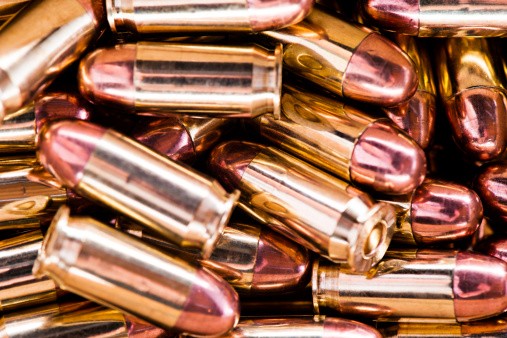 The finished 45 ACP ammunition was similar to the .45 Schofield cartridge, yet slightly less powerful than the .45 Colt cartridges that were used by the cavalry. In the in 1910, the second round of evaluations occurred, and the original Colt design went through extensive testing with absolutely no failures, yet 37 stoppages and/or part failures were reported for the Savage edition. Thus, the Colt design was officially adopted as Model 1911.
The finished 45 ACP ammunition was similar to the .45 Schofield cartridge, yet slightly less powerful than the .45 Colt cartridges that were used by the cavalry. In the in 1910, the second round of evaluations occurred, and the original Colt design went through extensive testing with absolutely no failures, yet 37 stoppages and/or part failures were reported for the Savage edition. Thus, the Colt design was officially adopted as Model 1911.The stopping power of .45 bullets is usually characterized in terms of the projectile's penetration depth, expanded diameter, and energy. The bullet energy for most 45 ACP ammo for sale today can be anywhere from 350 to 500 ft·lbf. Since 45 ACP is a moderately powered cartridge, the wide diameter of the .45 ACP bullets is not likely to pass through a target with enough velocity to puncture another target.
The combination of controlled penetration and stopping power of the 45 ACP ammunition in stock today makes it practical for military and police use, however the smaller magazine capacity and larger size/weight of pistols that are chambered in 45-caliber have led more agencies in the U.S. to adopt sidearms in 9mm Parabellum instead.
Still, many U.S. tactical police units continue to use .45 ACP ammo, including but not limited to the FBI Hostage Rescue Team. Pistols that are chambered for 45-caliber ammo require longer and wider grips, which means they are not very suitable for shooters with small hands. Although most NATO militaries now use pistols chambered for the 9mm Parabellum cartridge, the popularity of the 45 ACP cartridge is still seen heavily in the United States, where it is commonly used for sport shooting.


 Loading, please wait...
Loading, please wait... 